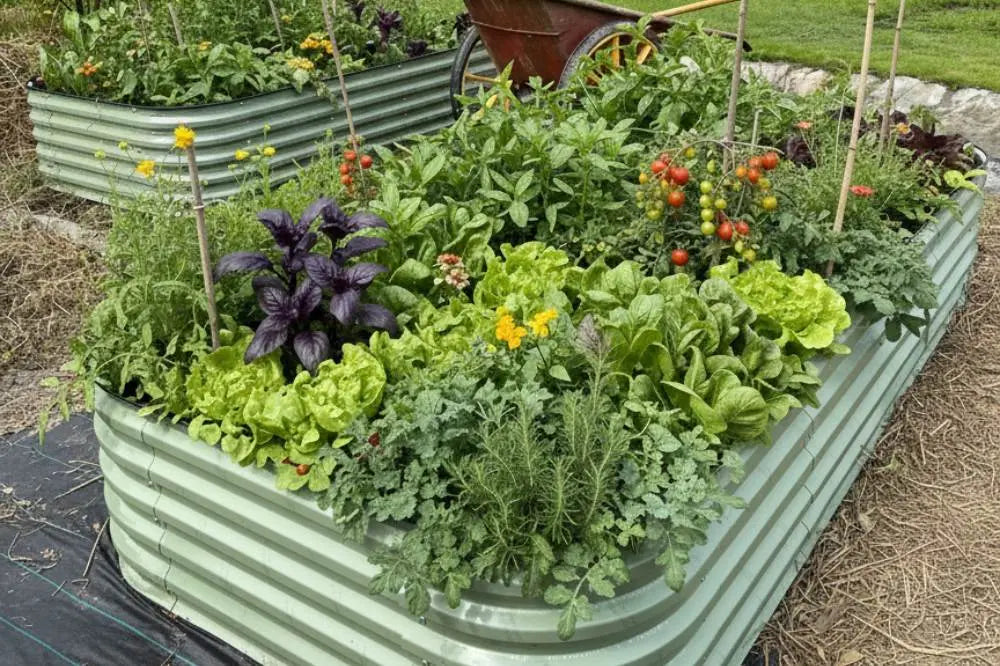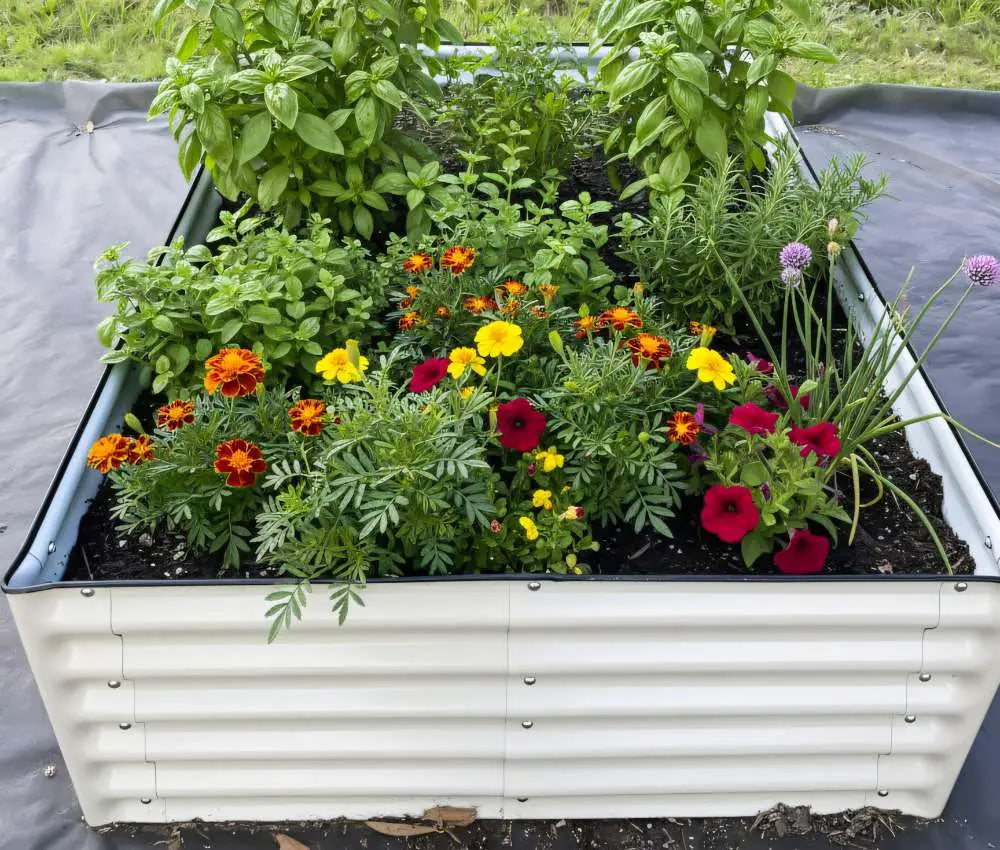Gardening Lessons for Adults: Tips to Keep Your Garden Alive
By Zakia Akter
Author bio: Zakia Akter recently completed his graduation from National University. Stay creative, keep creating. He throws himself down among the tall grass by the trickling stream; and, as he lies close to the earth.

Introduction
Gardening is a great way to keep in touch with nature and the outdoors. It is a great hobby to have, and it is an excellent way to get exercise. However, it can be difficult to keep plants alive.
It is easy to neglect a garden and not care for it. In order to keep your garden alive and flourishing, there are a few things that you should consider.
One of the most important things to consider is planning. You should think about what you want your garden to look like and where it is going to be located.
If you have ever had a garden, then you know it's a lot of work. It sounds like a lot of work, but it's extremely rewarding. You know what they say though, the harder something is, the more rewarding it is. Just because gardening is a lot of work, doesn't mean you should give up. Here we will look at some of the ways you can keep your garden alive.
Don't forget to compost
Composting is a great way to recycle your plant materials. You can use compost to fertilize your raised bed, as well as your lawn.
You can also use it in your compost bin to make your yard a little bit greener. One thing to remember when composting is that you will need to remove all the dead and diseased plants, as well as the stalks and leaves.
This is important because it will ensure that you are getting the most out of your compost. It will also create a healthier garden.
Also read: The ultimate guide to composting.
Introduction of native plants
Native plants are one of the best ways to keep your garden alive. They are not only easy to grow, but are also low maintenance.
When you introduce native plants to your garden, you’ll also be helping to preserve the biodiversity of your local ecosystem.
Native plants are perfect for your garden because they are already adapted to the conditions of your area. They love the sun, they love the water, they love the soil.
If you want to introduce native plants, you should do it with your compost. These plants are a must in your compost. Not only are they easy to grow, but they also help with the breakdown of your compost.
Prune and trim
Pruning and trimming are important steps in the care of your plants in the garden bed. It keeps your plant healthy, and it will last for a lot longer. By removing the dead and diseased leaves, you are giving your plant the nutrients it needs to grow. Trimming your plant will help it to grow faster, which will ultimately make it healthier and more beautiful. The best time to prune is after the flowers have bloomed and the plants are in full bloom. If you’re going to prune, you need to make sure that your plant is fully dried out before you do so.
Fertilize
A fertilizer designed for plants will help plants grow more and produce fruits and vegetables. Fertilize your garden with a fertilizer that is designed for plants, not soil. The success of a garden depends on the quality of the soil. If the soil quality is poor, the plants will struggle to grow.
Fertilizers provide nutrients such as nitrogen, phosphorus, and potassium. These nutrients are crucial for plant growth.
Ammonia can also be used as an effective fertilizer. Ammonia is a natural byproduct of the composting process.
Also read: Quick Guide to Fertilizing Plants Best Tips for Beginners.
Keep your garden looking great
One of the most satisfying things to do in the spring is to make your garden look great as the flowers and plants pop up. Metal raised garden beds can make your garden tidier and neater. Except using raised garden bed, there are a few steps that you can take to keep your garden looking its best. One of the first things that you should do is create a compost bin. And one of the easiest methods to do this is to use an old trash bin and then fill it with organic materials. You can also buy a compost bin that is designed for your needs. The next step is to choose a variety of plants. There are so many different plants out there that you can choose. You can even get them online. The next step is to choose a variety of flowers and plant them strategically around your garden. Lastly, you can choose plants that are resistant to insects, bugs, and disease. There are plenty of plants that are resistant to these things.

Repot
When it comes to gardening, it is important to know when to repot and how to repot. Repotting is when you move a plant from one container to another. It is necessary to keep your plants thriving. You will know when to repot your plants by taking a look at the roots. The roots should be at least twice the width of the container. If your plant's roots are touching the sides of the container, it is time for a repot. When you decide to repot your plant, you will need to remove the plant from the container and put it in a larger or higher container. Use a pot with drainage holes. Fill the pot with potting mix, and water the plant, but do not over water. After the plant has been moved, it is important to keep the soil moist.
Keep the soil moist
When it comes to gardening, there are two things that are important for success: water and soil. If you have decent soil, you’re in good shape. Soil needs to be moist and loose in order for it to nourish plants. If it’s too dry, the roots will shrivel up and the plants won’t be able to grow. If it’s too moist, the soil will become heavy, and the plants will end up drowning. What you need to do is find a balance. You can do this by watering your garden regularly and wait until the soil is dry before watering it again. You can also add organic material to the soil, like compost or leaves, which will help keep it moist.
Add more plants
If you're over the age of 18 and have a garden at your home, you have a lot of work to do. This is why your garden needs to be cared for just as much as you do. One way to keep your garden alive is by adding more plants. Adding plants in between the rows of your garden will help provide shade and nutrients to the soil. It will also help reduce the need for frequent watering. If you find that you are adding too many plants, you can remove some of the weaker plants to make room. You can also add mulch. Mulch will help retain moisture in the soil. It will also help prevent weeds.
Keep your garden well maintained
It can be hard to maintain your garden all year. This is why you need to take the time to take care of your garden. One way to keep your garden well maintained is to keep it well dug. The soil should be kept loose, not compacted. You should also add fertilizer to the soil as needed. Another way to keep your garden well maintained is to keep it watered.
Conclusion
Gardening may seem like a relaxing hobby, but as time goes on, it can also be a bit frustrating. Here is some advice that can help improve your gardening experience, regardless of whether you are a novice or a professional! Please let us know if you have any questions or comments by visiting betacraft workwear. Have an amazing day and enjoy your garden!


